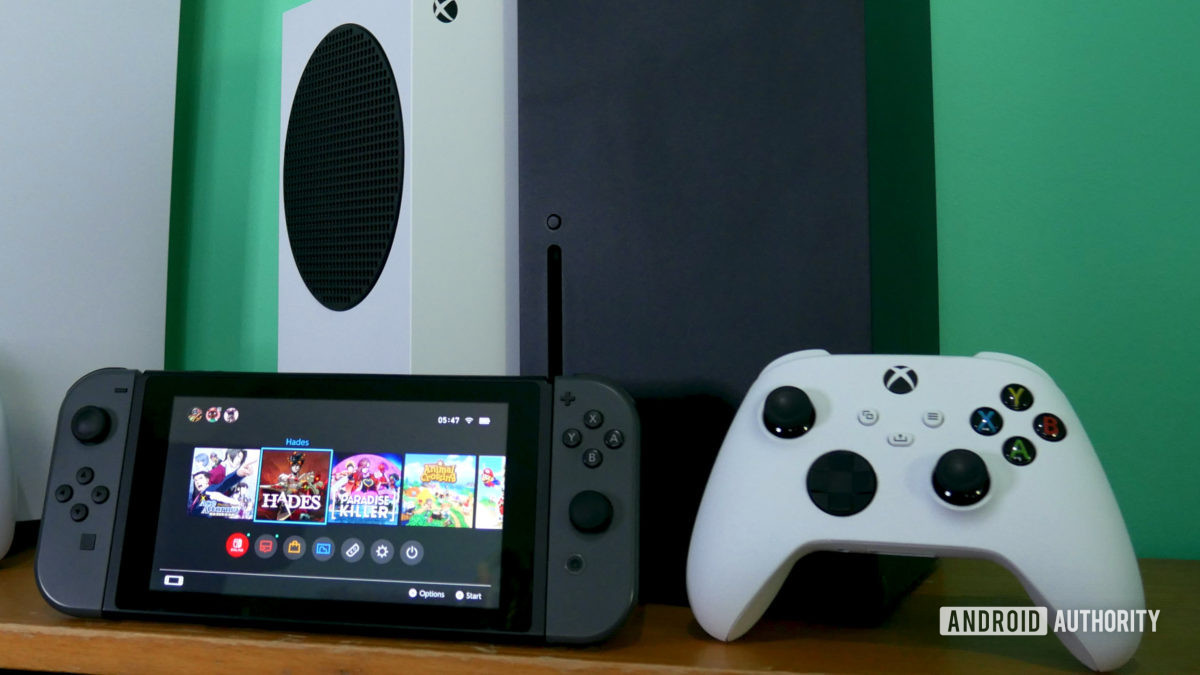
Much to the chagrin of some gamers, rumors that Xbox Game Pass — Microsoft’s “Netflix of gaming” — might be coming to the Nintendo Switch were at least temporarily dashed in August. “We have no plans to bring it to any other kind of closed platforms right now, mainly because those closed platforms don’t want something like Game Pass,” Xbox head Phil Spencer recently told GamesRadar. There have also been hints Nintendo may have refused a proposal — but even if it did, we feel like Game Pass could be a good fit on the Switch for a number of reasons.
Why we want to see Xbox Game Pass on Nintendo Switch
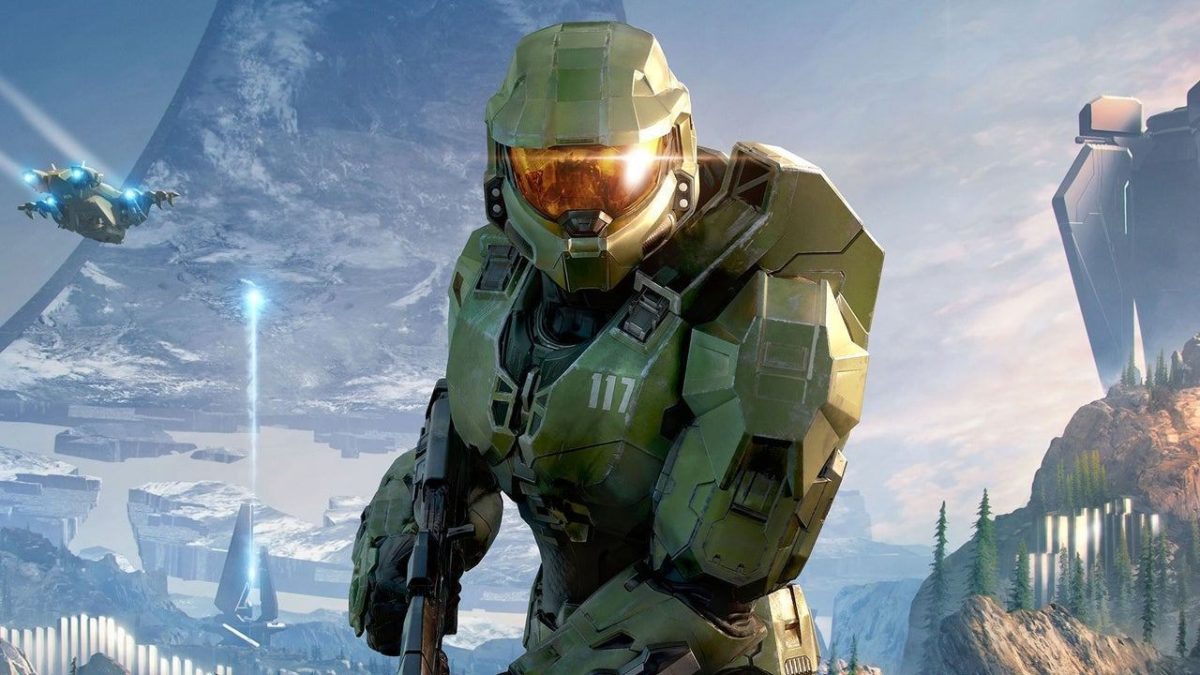
The obvious benefit for Switch buyers would be the ability to play dozens of games at a low price. A basic Game Pass subscription costs $10 per month, and lets players download from a rotating selection of over 100 titles. Many of these are great, from third-party releases to big releases from Microsoft’s own studios — see recent additions like Hades or Psychonauts 2, respectively. Nintendo doesn’t have an equivalent service, which means that if you want to try something out, you have to cross your fingers for a demo, or pay anywhere between $15 and $60 per game. $120 per year for Xbox Game Pass on Switch would be a steal by comparison.
Game Pass would also mean a bigger, more diverse range of games. Nintendo has been better about attracting third parties and offering more “mature” titles during this console generation (like Mortal Kombat 11, Doom, and even Dark Souls), but the truth is that many of the big Switch releases are still first-party and family-friendly, like Super Mario Odyssey or Legend of Zelda: Breath of the Wild. You won’t find traditional blockbusters like Destiny 2 or Call of Duty in the eShop, even though they’re playable just about everywhere else.
See also: The best Switch eShop games you should buy today
Often, of course, games are missing simply because of technical limitations. When the Switch launched in March 2017 it was already underpowered next to the PS4 Pro, never mind the PS5 or Xbox Series X/S. Microsoft’s Game Pass Ultimate plan could offer an easy workaround by means of cloud streaming — something Nintendo has experimented with for games like Control, but not to the extent Xbox Cloud Gaming would provide. At a still-reasonable $15 per month, Ultimate might make the Switch a viable destination for the latest blockbusters.
That could be particularly relevant once Valve’s Steam Deck ships in December. The handheld will be able to play anything that can run on a PC, and with a little know-how that can include Game Pass titles. It’s already sold out well into 2022, however, and owners will have to mess around to load any storefront that isn’t Steam. The Switch could therefore become a better choice of portable, assuming the Xbox app is an easy eShop download, and enough customers have the bandwidth for streaming. More on that in a moment.
Why it makes sense
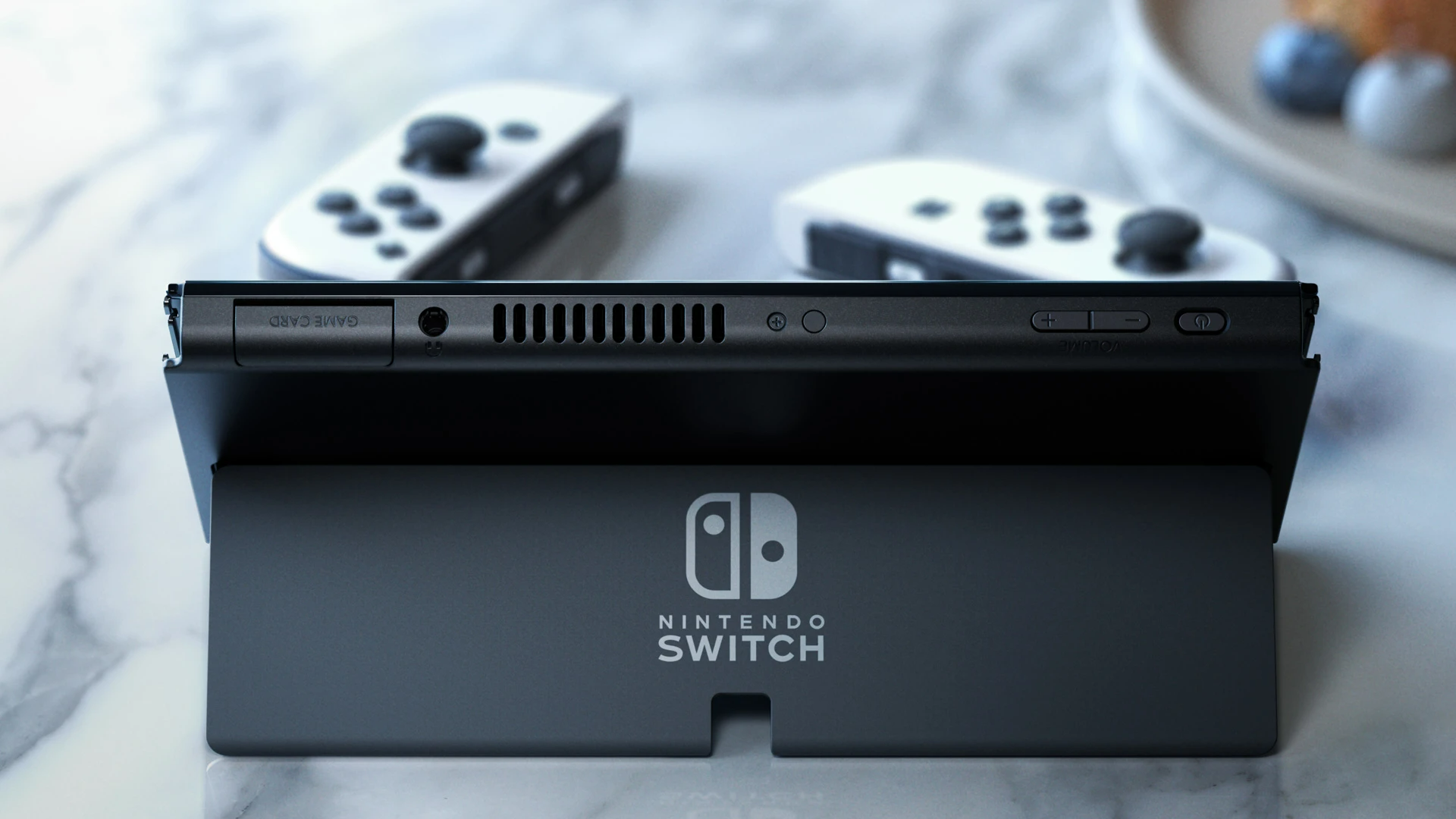
Microsoft’s interests are served by having Game Pass on as many platforms as possible, so Xbox Game Pass on Switch just makes sense. Microsoft may have fancy hardware with the Xbox Series X and Series S, but its long-term strategy is to get as many people hooked on its content subscription model as possible. It’s not just raw subscription revenue either — on the Switch, Game Pass subscribers might become curious about Xbox and PC hardware, moving more Windows and Series X/S units down the line. It would also save Microsoft the trouble of building its own handheld, although executives have repeatedly shot down that idea anyway.
For Nintendo, the benefit would be a more attractive selection of games from which it could claim a take of the subscription revenue, and the purchases for those that buy after the game leaves the service. The company would also avoid the hassle of expanding its subscription offerings — which is probably for the best, given its track record. Nintendo has never been particularly good at online platforms.
It’s not like there hasn’t been some crossover in the past either. One-time Xbox exclusives like Cuphead and Ori and the Blind Forest have appeared on the Switch, and while Microsoft has since vowed to focus more narrowly on its own platforms, there’s already an established relationship between the two that could be rekindled.
Why it might not happen
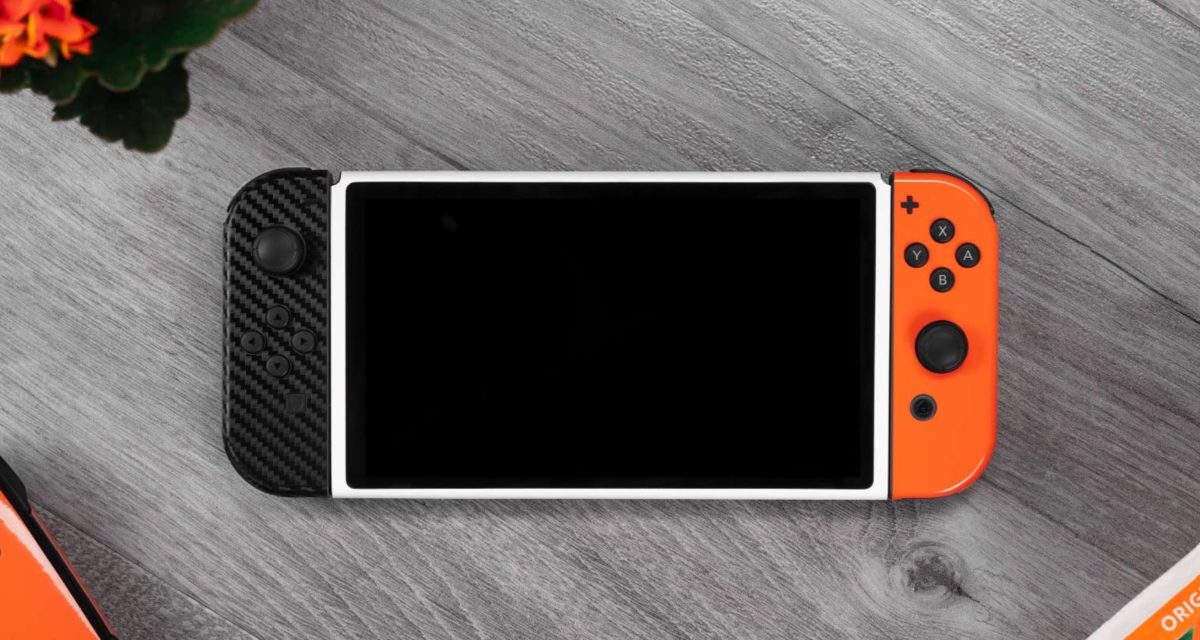
The Switch’s specs are a serious limitation. Although some Game Pass titles might be able to run natively (or are on the eShop already), others would have to kick over to streaming, which for all its benefits could exclude a large number of people. The bandwidth for high-quality cloud gaming can be expensive or lacking, and even when you’ve got it, network conditions can sometimes cause intolerable lag. It’s one thing to play Civilization VI with an input delay — quite another to play an action game like Halo. The Switch’s subscriber base could easily become fragmented.
The bigger obstacle is almost certainly business. Just the idea of allowing a rival’s service on the Switch might make Nintendo nervous, especially since it doesn’t have a parallel product to market on Xbox. The company is also notoriously controlling of how people interact online, and might not want to bridge infrastructure for fear of losing that control or getting complaints from angry parents. Say what you will about Nintendo’s policies, but things like friend codes make it harder for kids to run into problems.
Specs are a problem, but the bigger obstacle is almost certainly business.
Revenue sharing would be the toughest fight. Microsoft isn’t accustomed to splitting Game Pass money with anyone but developers and publishers, so it would likely insist on keeping as much of it as possible. Nintendo, rightly, would demand at least a small cut, since it would be feeding the service with subscribers and jeopardizing eShop sales. Getting a solid deal from the jump would be critical given the ugly battles that have arisen elsewhere in the tech industry. In the ongoing Epic v. Apple dispute, Apple recently likened giving a pass on in-app transaction fees to shoplifting.
We haven’t even touched on the deals game creators would have to make to support Game Pass. Would they be obligated to spend resources on new ports? Would Microsoft or Nintendo help? Or would Switch subscribers be restricted to eShop titles that happen to crossover?
Nintendo might want to leave room for its own subscription service, too, but this is unlikely. Aside from its reluctance in the online space, there haven’t been any rumors to speak of. The company seems to be content with Switch Online, which mostly enables multiplayer but also includes free games like Tetris 99 and a collection of NES and SNES classics. It’s cheap, as well — 12 months is a whopping $20. It’s a low-risk venture for gamers and Nintendo.
Related: The best free Nintendo Switch games
Something like Game Pass might be seen as more dangerous than it’s worth. Nintendo is doing pretty well on conventional sales, not least because the permanent exclusivity of many games means it can charge full price for years. Just three $60 titles match the income of a Game Pass Ultimate subscription, let alone any indie games or DLC someone might buy.
What are the chances of Nintendo signing on to Game Pass?
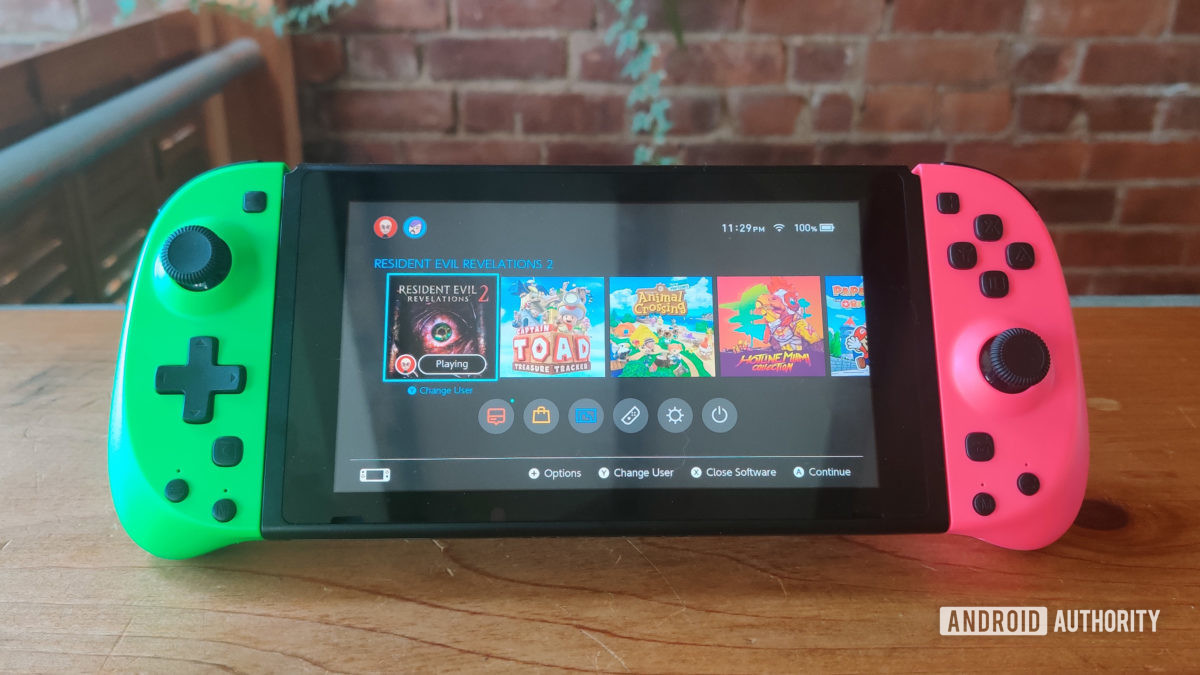
In 2021, probably tiny. It sounds like Nintendo did reject an offer, in which case it’s hard to fathom what would change by the end of December. Microsoft will need to sweeten its deal, or wait for Nintendo to be in a weaker negotiating position. The odds are against the latter, what with the Switch continuing to fly off shelves.
2022 or 2023 is another matter. Nintendo is thought to be working on a “Switch Pro,” which, if based on Nvidia’s rumored Lovelace architecture could be powerful enough to run most current (and some future) Game Pass titles. That of course would knock down technical hurdles, and Nintendo might even be eager to show it can play with the big boys. The ultimate decider will be whether a partnership can generate the profits both sides want.